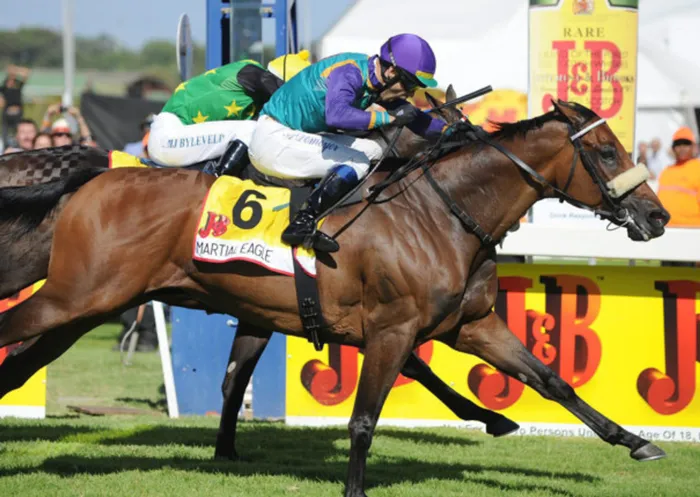Horse sickness outbreak: KZN worst hit

File photo: Horses that had been vaccinated for more than five years were unlikely to be infected. Photo: Matthew Jordaan File photo: Horses that had been vaccinated for more than five years were unlikely to be infected. Photo: Matthew Jordaan
Durban - There has been an outbreak of African Horse Sickness, a potentially fatal virus that could impact on the racing and breeding industry as well as recreational riders.
KwaZulu-Natal is the worst-hit province with 12 dead horses reported to far, the most fatal cases in southern Africa, according to the African Horse Sickness Trust’s online statistics.
Horse movement is allowed within affected areas but not into parts of the Western Cape which are free of the disease.
The worst-hit area is Camperdown, with the Midlands also affected.
So far, Gauteng and Limpopo have each had three fatal cases reported. The Eastern Cape has had two, Mpumalanga, North West and Free State have each had single cases.
In total, 24 horses have died since September, with this month the worst.
African Horse Sickness is a highly infectious and deadly disease affecting horses, mules, zebras and donkeys.
The United States’ Centre for Food Security and Public Health report by the Iowa State University said the virus was spread by infected midges and caused fever and heart and respiratory problems. It does not affect humans.
African Horse Sickness Trust chairman Douglas Welsh said the outbreak was expected every year in the middle of February. It often started in northern KZN but, “strangely, it started in the Midlands this year”. More fatalities were expected. “The outbreak is still going to spread countrywide and it looks like we will have a bad year,” he said.
The first reported case was in Camperdown three weeks ago, with more reported last weekend.
Horses that had been vaccinated for more than five years were unlikely to be infected.
“It is breeding horses and foals which are in danger,” he said.
Horse owners were advised to have their animals in their stables between 3pm and 9am and to use insect repellents.
He said it was important for owners to report all horse deaths to the trust, “as this would help us know which areas need vaccination”.
Welsh said they were vaccinating between 3 000 to 5 000 horses across the country.
Racing South Africa chief executive Peter Gibson said race horses were vaccinated every year as part of legislation, and this helped to prevent the spread of the virus. He said if the country was to tackle the sickness, the government needed to help informal horse owners from poor communities with vaccinations.
“The government has said it will bid for 2024 Olympic Games and, if we are to be successful, we have to prevent African Horse Sickness because it will impact on horses from other countries,” he said.
KZN Agriculture spokesman Jeffery Zikhali said the department had not been alerted to the horse sickness but would follow up with horse owners and professional bodies. - The Mercury